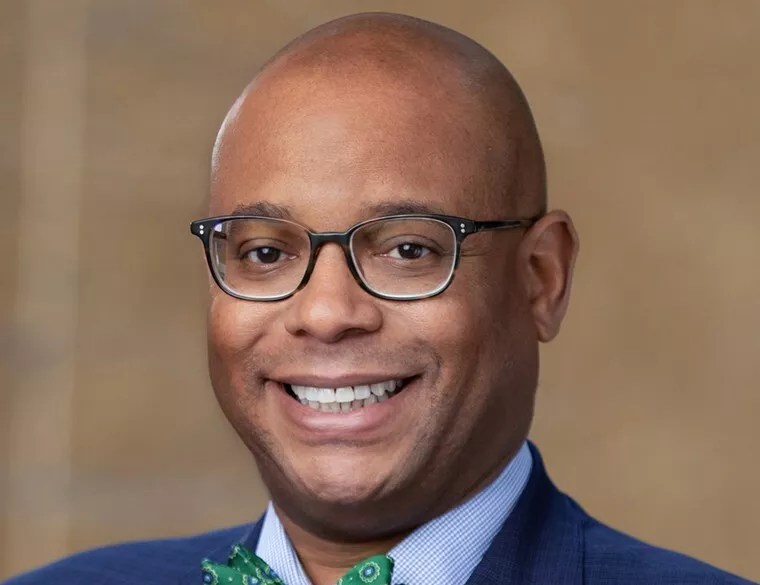
American Public Power Association

Audio By Carbonatix
The relationship between Xcel Energy, the utility giant that provides electric and gas services across metro Denver, and the consumers it serves has been heating up for years.
But at a September 19 meeting between Leslie Glustrom, a longtime volunteer watchdog for the Boulder nonprofit group Clean Energy Action, and the president of Xcel Energy Colorado, Robert Kenney, the conversation stayed positive – despite getting heated at times.
“This is an example of how all of our civic conversation should occur,” Kenney said at one point during the public question-and-answer session, hosted by the Boulder-based coalition Empower Our Future, which comprises “organizations and individuals in support of local clean power,” according to its website.
Earlier in the day, Xcel had announced a $15 billion Clean Energy Plan that will double the amount of renewable energy in the company’s system in Colorado – including $10 billion in Inflation Reduction Act tax credit benefits. As proposed to the Colorado Public Utilities Commission, which regulates Xcel in the state, it would cut carbon emissions by at least 80 percent by 2030 and end the use of coal by that date as well.
“I’m very proud of the fact that between 2005 and 2030, you will see that our renewable mix grows substantially while the amount of natural gas and coal that we are burning decreases substantially,” Kenney said.
Glustrom praised Xcel’s progress, but continued to hold its feet to the fire. “We’ve made great progress on the electric side, and I want to thank Xcel’s employees,” she said. “On the other side of the coin is the natural gas. We’re at the beginning on natural gas and it’s not a very good story, so it’s kind of this mixed message here tonight.”
Glustrom and other advocates have pushed the utility to move on from natural gas, and one question addressed that topic head-on: “Is Xcel’s ongoing commitment to fossil fuels appropriate?”
Kenney said he rejected the premise of the question, insisting the utility company has actually committed to decreasing fossil fuels, referencing the plan filed earlier that day. “We will be retiring, or allowing to expire, about 1,300 megawatts of natural gas contracts,” he continued. “We are replacing it with about 600 megawatts of natural gas that will be strategically located and that will very likely run less than 5 percent of the time. That is because we have a responsibility to ensure the reliability of the system and do it in a way that is affordable for our customers, as well.”
While she said she respects that the utility needs to keep the energy grid up and running, Glustrom suggested that continuing to invest in gas and technologies that transmit it will end up punishing customers in the end, leaving them paying for those costs long after gas becomes obsolete, as is the case with coal plants right now.
“We’re going to pour hundreds of millions of dollars into this thing over the next seven years, and then we’re going to walk away from it,” she cautioned. “So let’s just walk away.”
Relying on natural gas is what hurt customers last winter – when bills got so high that the state legislature created a special committee to address the situation – and it could again in the future. “Xcel is still discounting their future gas costs, at what’s called their weighted average cost of capital, at something above 6 percent,” she explained. “If you didn’t understand that, don’t worry. It just means that they make their future natural gas costs look like they’re going to be a really small fraction. Those of us who actually pay the bills know that actually the gas costs are a huge part of our bills.”
Last year, as people were hit with high bills because of skyrocketing natural gas prices around the globe, Xcel also reported record profits. Whether those profits were justified was another point of discussion.
“I do not find that there’s an inherent conflict between doing well and doing good,” Kenney declared. “It’s a bit of a leading question…. I think the better way to ask the question is, what does Xcel Energy do with its profits?”
Kenney noted that for every dollar the utility earns, it invests three dollars into the business. The high profits mean it has a great credit rating, thereby allowing the company to invest in newer technologies like solar and wind energy, he added.
Glustrom pointed out that the company’s higher rates is what earned that profit, not a new business model or a larger sales base. The PUC has considered eight rate cases since she began her advocacy work, leading to over $800 million more per year in revenue for Xcel since 2003.
“I understand [Kenney’s] argument, but it doesn’t hold water when you drill down,” she continued. “We’re paying in summer fifteen cents per kilowatt hour and something probably in the neighborhood of twelve in the winter for a product that costs something under four cents to produce.”
The latest rise in Xcel electric rates came on September 1 and added an extra $4 to the average residential bill. Last April, the company raised rates over $5 per month for the average bill.
The most recent increase is actually much smaller than the utility had proposed, thanks to the efforts of advocates like Glustrom, who helped decrease the total hike to $45 million from the $312 million Xcel had asked for.
She and others were able to do so because Xcel is regulated by the state, since it is largely a monopoly in the local market.
Whether it should continue to be a monopoly also came up.
“I always think it’s important not to call the utility a monopoly, but a natural monopoly,” Kenney said. “Because a natural monopoly is an economic construct – driven by market conditions, highly capital-intensive – and it’s more efficient to have one entity stringing poles and wires.”

Robert Kenney, Xcel’s president in Colorado, kept up with the pace of the lively discussion.
Xcel Energy
Pointing to the company’s continued growth and innovation, he said that its position in the market is a good model. But Glustrom advocated for allowing consumer choice in utilities.
“There may be some folks on the call that think I’m crazy,” she said. “But I’ve been called crazy a lot, and, man, I’ve been vindicated.”
A natural monopoly over transmission and distribution is one thing, but a monopoly over generation is another, Glustrom continued. Under that model, other companies could generate power as well, improving the energy grid and helping with the transition to renewable energy.
A question from the audience asked about Xcel’s Clean Heat Plan, which focuses on reducing greenhouse gas emissions from 2015 levels by 4 percent before the year 2025 and by 22 percent before 2030: “Xcel’s Colorado Clean Heat Plan appears to many as a plan for continuing Xcel’s natural gas business well into the future. Is that Xcel’s intention?”
According to Kenney, the intention of the plan is to reduce carbon emissions in a meaningful and affordable way.
“What we’ve put forward, again, demonstrates a commitment to using less fossil fuel, and what fossil fuel we’re using, using it in a more efficient and less emitting way,” he said. “I don’t know that I accept the premise of the question, but appreciate the interest.”
Glustrom blasted the plan in her response, saying that it feels exactly like what happened with coal plants: Advocates knew they would be phased out soon, but the utility and its regulators didn’t listen.
“It’s just absolutely disconcerting,” she said. “I’m hoping Xcel will listen carefully and not do what we did on coal, which is spend a lot of money first, privatize the profits, socialize the risk and put all the stranded assets onto their customers.”
Though the discussion occasionally got intense, Kenney said he was pleased with the session.
“I am really enjoying this discussion,” he said. “Please know, by virtue of the fact that I’m here, that I am committed to engaging in healthy and spirited discussion. I do subscribe to the perspective that steel sharpens steel and a good marketplace of ideas makes all of our ideas better.”